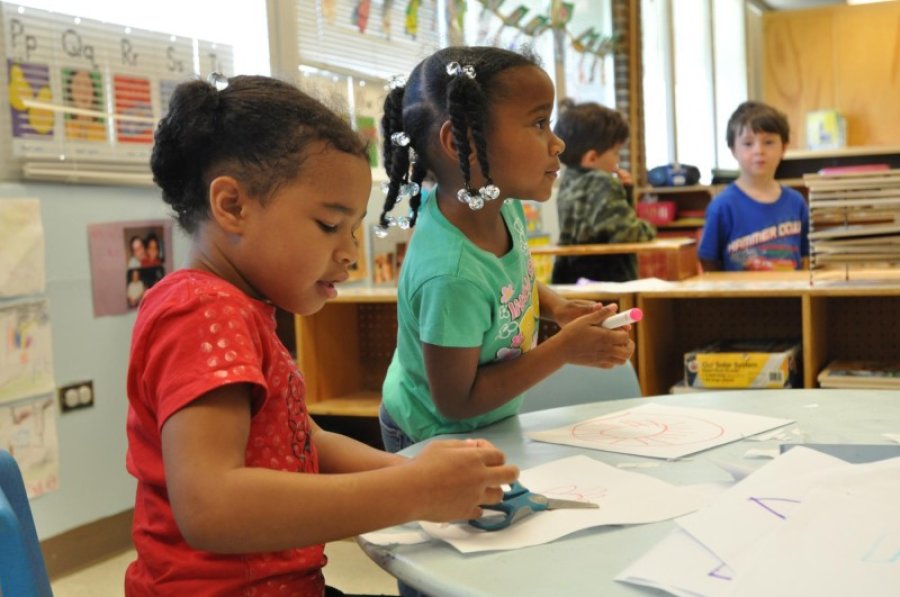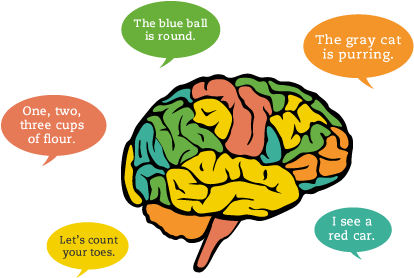Early childhood education in Nigeria plays a crucial role in the formative years of a child. A child’s early years lay the foundation for all that is to come. It is at this stage children need to learn and develop their cognitive skills.
In recent years, researchers have learnt that the human brain develops the vast majority of its neurons, and is at its most receptive to learning, between birth and three years of age. The aim of this article is to give the benefits of early childhood education in Nigeria. It will explain early childhood education and also give its importance to learning and development in Nigeria.

What is early childhood education?
Early childhood education (ECE) is about honing and moulding the holistic child. It is a term used to explain any type of educational program that serves children in their preschool years. It is during this phase of life that the foundations for cognitive, physical and emotional development are built. Young children generally start learning the basics of walking, talking and naming colours and shapes at home.
However, early childhood education allows children the chance to apply what they have learned at home in an applied setting, mixing with other individuals outside of their homes. At an early age, the brain develops much faster, this is as a result of the neuron. More than million-neuron connections grow each second during the first few years of life. It is at this period young children are supposed to strengthen and increase their cognitive and physical skills. Early childhood education (ECE) works to challenge, motivate and nurture the formative early years of life to give children every possible chance for healthy development.

It’s important for early childhood educators to teach young children skills that can develop their mindset, especially children in Nigeria. Skills such as physical, social, literacy, thinking (cognitive) are crucial to the growth of young children. Early childhood education can be beneficial for young children who lack the resources and opportunities as compared to their peers. It can be particularly powerful for the development of kids from low-income families and for those at risk for academic failure, helping to level the playing field and ensure all children have the chance to develop the right skills needed to excel in school and in life.
Early childhood education in Nigeria has been gaining recognition. In 1985, Nigeria had about 4200 early childhood institutions, and by 1992, the number increased to about 8,300. At about now, early childhood educational institutions are located in various places and buildings. Places such as universities and colleges, premises of some industries, churches, residential buildings etc.
What are the benefits of early childhood education in Nigeria?
A lot of parents in Nigeria are not aware of the benefits of early childhood education to their children. Some do not even see the need for enrolling their children in preschool or kindergarten, as they do not consider this level of learning to be important. This is the wrong notion, as early childhood education is vital to the growth and development of your child.
Here are 5 benefits of early childhood education in Nigeria
1. Improved Social Skills
Young children love to play and communicate with their mates, and the preschool environment gives them the opportunity to do just that. Besides, the environment enables children to acquire crucial skills that allow them to listen to one another, express ideas, make friends, and collaborate. One major advantage of social skills in early childhood education in Nigeria is the fact that it plays a key role in facilitating a student’s achievement in reading and mathematics by directly influencing motivation, which in turn influences engagement.

2. Eagerness to learn
You might not agree with this point, but it is a statement of fact. Students who receive quality early childhood education in Nigeria are reportedly more confident and inquisitive, which causes them to perform better in grade school. For instance, in Greensprings School, students who started from the preschool stage to the secondary phase achieved outstanding performance and recognition in their academics; an example is Honour Olatunji, who emerged Top in the World in 2016 Cambridge IGCSE Mathematics.
Teaching young children early childhood education in Nigeria helps them to learn how to manage challenges and build resilience in times of difficulty. You will find that students who begin a school from the preschool settle easily at the institution and they acquire a long-term interest in learning different things, including music, drama, singing etc.
3. Encouraging Holistic Development
Teaching early childhood education in Nigeria to young children provides a strong footing for their development. It helps to build a child’s cognitive, physical, social and emotional proficiency which will prepare them for life challenges. At an early age, children are curious to learn. According to Thomas (2016), “Teaching Mathematics early helps children to develop critical and reasoning skills.”
However, we can’t ignore the difficulty in finding qualified trained early educators in Nigeria. Early childhood education is unique in its requirement of trained teachers. The reason why it is hard to find capable teachers to teach early childhood education in Nigeria is that competent educators won’t accept the low salary offered by institutions in the country. Therefore, this forces preschools in Nigeria into cutting corners, by hiring unqualified teachers that may not be suitable for the job. This, in the long run, will affect the quality of education being served to the children.

4. Boost Self-Confidence
Through interactions with other children and teachers, children develop a positive mindset and perception of themselves. A child at three years, when compared to other children who might be older, will display a level of boldness and articulation — this is as a result of teaching early childhood education.
5. Enhanced Attention Span
Young children always find it difficult to pay attention in the classroom, especially from age 3 to 5 years. The length of time during which preschool children concentrates as always been a concern for educators and teachers. Nevertheless, if young children are taught early childhood education in Nigeria at a tender age, this will help enhance their attention span. Motor skills are very crucial to young children — task such as painting, drawing, playing with toys can go a long way in improving their attention.
There are so many other benefits of early childhood education in Nigeria. It is advisable for educators to introduce early childhood education into their curriculum. Access to quality early childhood education in Nigeria is vital. Services need to be offered and they must be of high value. Parents must also be supported to make decisions. There’s a lot of information available to assist parents with their decision-making and Greensprings is a good place to start.

